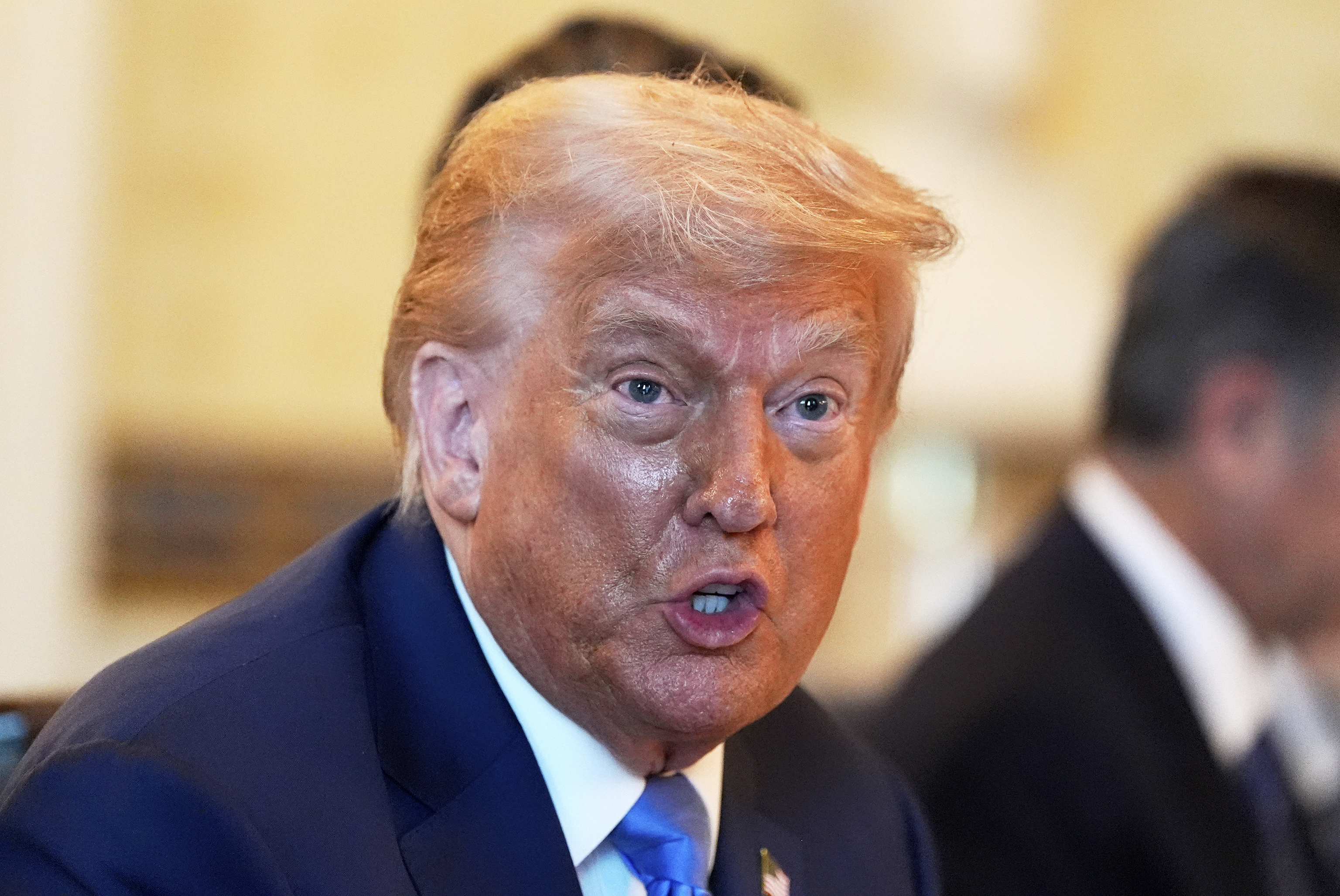The U.S. President, Donald Trump, has promised this Monday to continue helping Ukraine defend itself. To do so, he has stated that he will maintain shipments of the necessary material to face the brutal wave of Russian aerial attacks in recent weeks, reversing the Pentagon's decision to interrupt deliveries citing stock issues, after the U.S. used the largest number of Patriot missiles in its history to stop Iranian attacks on Persian Gulf bases in retaliation for bombings on its nuclear facilities.
"We're going to send some more weapons. We have to. They have to be able to defend themselves" he said on Monday, during a joint appearance with Israeli Prime Minister Benjamin Netanyahu, from the White House with unusual firmness. "The Ukrainians are under heavy attack now. They are taking heavy blows. We will have to send more weapons, mainly defensive weapons, because many people are dying in this disaster. I'm stopping wars and I hate to see people killed. They are not Americans, those being killed there are all Russians and Ukrainians, 5,000, perhaps 7,000 last week. 7,500 the week before, mostly soldiers, but people in towns and cities are being attacked. And if I can stop that... they have parents, sisters, and brothers," added the president.
The situation was striking because sitting next to him in the Blue Room was Defense Secretary, Pete Hesgeth, the official who made the decision to deprive Kiev of the missiles and interceptors it most needs just as Russia has multiplied its attacks, sending hundreds and hundreds of drones and ballistic missiles throughout the country, especially over the capital. Causing very serious damage and hundreds of deaths. Up to 11 civilians killed and 80 more injured, including seven children, just this Monday.
Last week, Russia launched over 1,200 drones, 39 missiles, and nearly 1,000 glide bombs against Ukraine, as stated on Monday by President Zelenski. The NATO Secretary-General lamented that Moscow produces in a quarter the same amount of ammunition as the entire Alliance in a year. And all while the Russian army strikes forcefully at several weak points on the front line, which spans over 1,000 kilometers. And while Trump publicly lamented Russian aggression and said it was necessary to continue supporting them, perhaps the clearest display of commitment that has come from his lips since returning to power, and a distancing from his subordinate, Defense Secretary Hegseth nodded in agreement. Hours earlier, White House press secretary, Karoline Leavitt, pointed to him, saying that he oversaw the stock review "to ensure that everything going out the door aligns with U.S. interests."
Trump's comment was not just any. Hours later, on the brink of midnight, the Pentagon issued an unusual statement, making it clear that there are specific orders. "By order of President Trump, the Department of Defense will send additional defensive weapons to Ukraine to ensure that Ukrainians can defend themselves as we work to achieve lasting peace and ensure an end to the killings. Our framework for the president to evaluate military shipments worldwide remains in effect and is an integral part of our 'America First' defense priorities," the message says.
"I am frankly disappointed with President Putin for not stopping the war. I am not happy at all (...) It's horrible, horrible. I am not at all happy with President Putin," Trump insisted. His words come on the same day as the publication in The Wall Street Journal of an exclusive report on how Trump, in his call last week with Zelenski, clearly distanced himself from his Defense Secretary's decision and the Pentagon's commands. Which affected Patriot anti-missile interceptors, AIM-120 anti-aircraft missiles, howitzers, AGM-114 Hellfire missiles, GMLRS missiles to arm Himars rocket launchers, Stinger anti-tank missiles, and grenade launchers.
According to the newspaper, in the Friday phone call, Trump reportedly indicated that he had ordered a review of the Pentagon's ammunition stocks, but not an immediate freeze on arms shipments. Hours earlier, the American had spoken again with Putin, admitting that it had not been very effective. Trump, according to his account, urged him to end the war during the call, but Putin refused, saying he would complete his objectives.
In the call, Trump assured Zelenski that the United States would send all possible military aid, the same as he stated publicly today, however, the shipment remains on hold, according to a Pentagon spokesperson. Zelenski himself suggested that for the first time he saw real reasons for optimism with this administration, after nearly six months of receiving attacks, insults, disdain, or humiliations. "This was probably the best conversation of all this time; it was extremely productive," celebrated the Ukrainian in a speech on July 5. "I appreciate the willingness to help."
